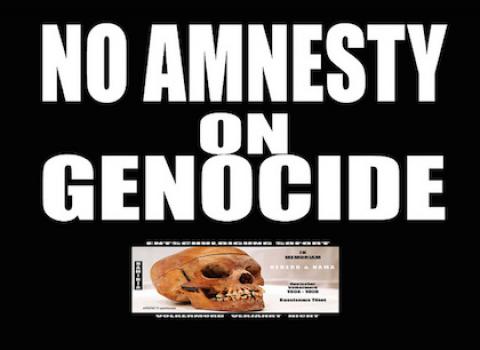It is now a week since Pope Francis described the slaughter of between 1 and 1.5 million Armenians, by the forces of Ottoman Turkey during the First World War, as “the first genocide of the 20th century”. The responses to the pontiff’s statement have, for the most part, been predictable. On Sunday, there was a near instant explosion of hurt outrage in Turkey. By Monday, the Turkish envoy to the Vatican had been ordered to leave and by Tuesday the pope’s words had been denounced by the Turkish president, Recep Tayyip Erdogan.
Across the Armenian diaspora, in sprawling communities that stretch from Paris to Milwaukee, London to Montreal, and in Armenia itself, there was a surge of optimism and even gratitude that the leader of the Catholic faith had used the “G-word” to describe the mass slaughter of their ancestors.
In the US, a nation home to a vocal Armenian community over a million strong, there have been calls for Barack Obama to follow the pope’s example and formally classify what the Armenians call the “Great Evil” as a genocide. It has been noted he was willing to utter that word in 2008 when, as a senator, he was courting the votes of Armenian Americans.
However, when the media analysts at the Vatican scrutinise the social media traffic of the past seven days, their eyes might well be drawn away from Turkey and the Armenian diaspora towards a cluster of tweets, comments and Facebook posts that emanate from Africa. There, another debate raged last week. The pope’s description of the Armenian massacre as “the first genocide of the 20th century” was simply incorrect. That grim distinction belongs to the genocide that imperial Germany unleashed a decade earlier against the Herero and Nama, two ethnic groups who lived in the former colony of South West Africa, modern Namibia.
The Namibian genocide, 1904-1909, was not only the first of the 20th century; in so many ways, it also seemed to prefigure the later horrors of that troubled century. The systematic extermination of around 80% of the Herero people and 50% of the Nama was the work both of German soldiers and colonial administrators; banal, desk-bound killers. The most reliable figures estimate 90,000 people were killed.
In the case of the Herero, an official, written order – the extermination order – was issued by the German commander, explicitly condemning the entire people to annihilation. After military attempts to bring this about had been thwarted, the liquidation of the surviving Herero, along with the Nama people, was continued in concentration camps, a term that was used at the time for the archipelago of facilities the Germans built across Namibia. Some of the victims of the Namibian genocide were transported to those camps in cattle trucks and the bodies of some of the victims were subjected to pseudoscientific racial examinations and dissections.
All of this is now well known and widely accepted in Africa and even in Germany. In 2004, the German government apologised to the Herero and admitted that what Germany had done to their ancestors constituted a genocide. As the co-author of one of the more recent histories of the genocide, I am regularly invited to attend conferences and give lectures on the subject in Germany and the word is spreading. A decade ago, my co-author and I described what took place in Namibia between 1904 and 1909 as “Germany’s forgotten genocide”. That phrase is now past its sell-by date, everywhere, it seems, other than in the Vatican.
The question now is whether the pope’s statement was made in ignorance or if the Vatican was guilty of the sin of deliberate omission. In either case, this has been a bizarre and self-defeating episode. Catholicism is growing faster in Africa than anywhere else: 200 million Africans are followers of the faith. But awareness of history is also increasing in Africa and crimes such as the Namibian genocide can no longer be ignored, whether by accident or design.
[David Olusoga is the co-author, with Casper Erichsen, of The Kaiser’s Holocaust: Germany’s Forgotten Genocide and the Colonial Roots of Nazism.]


Spread the word